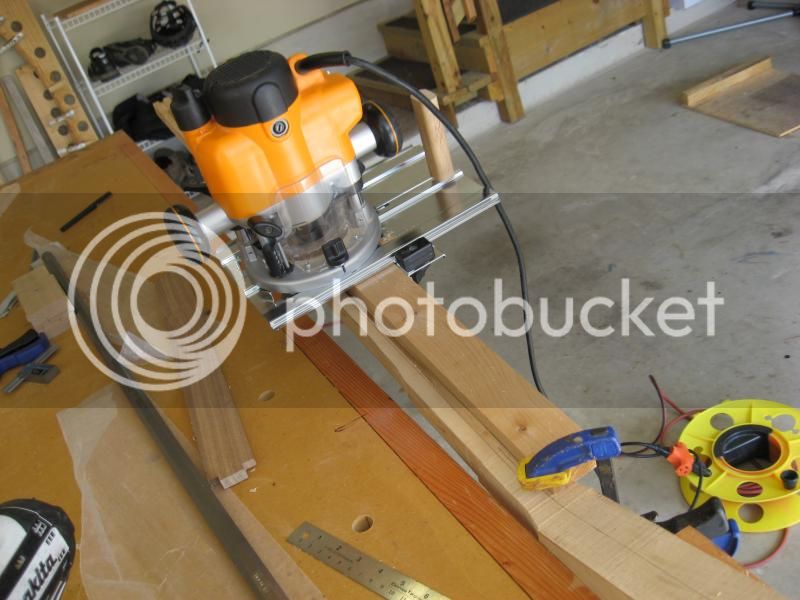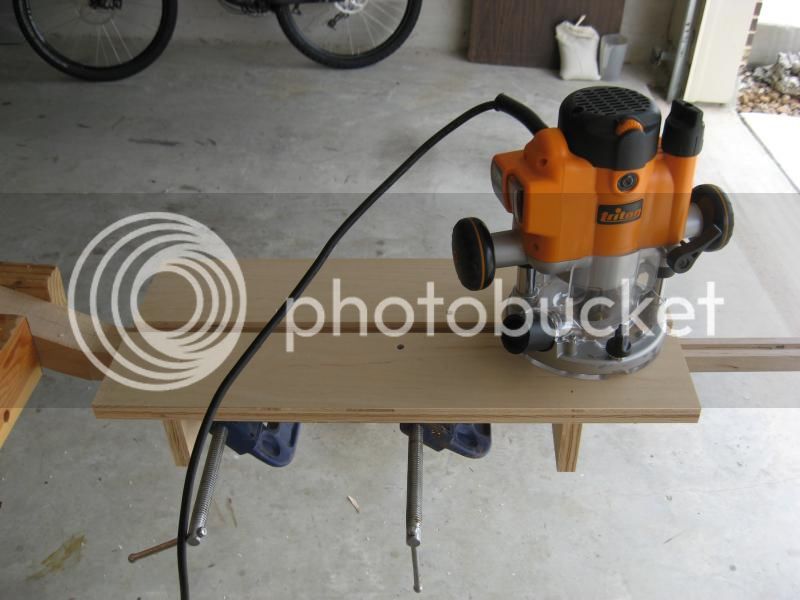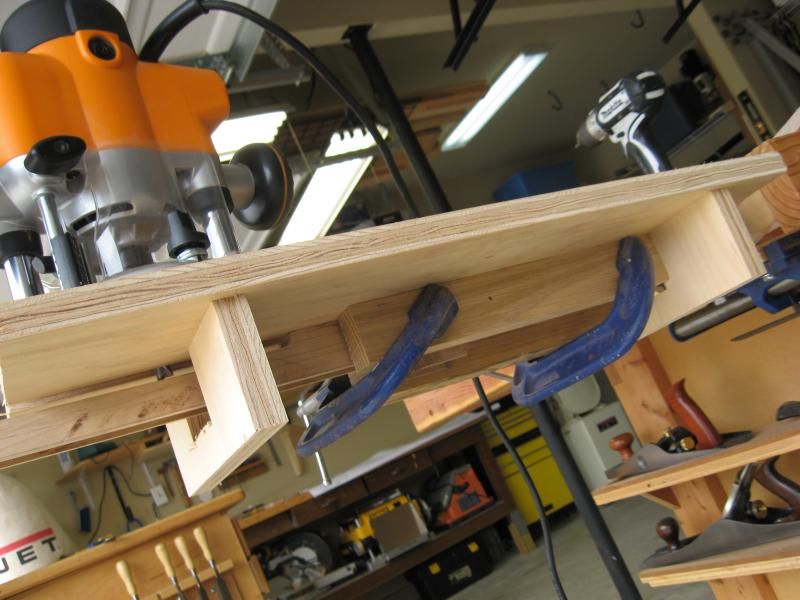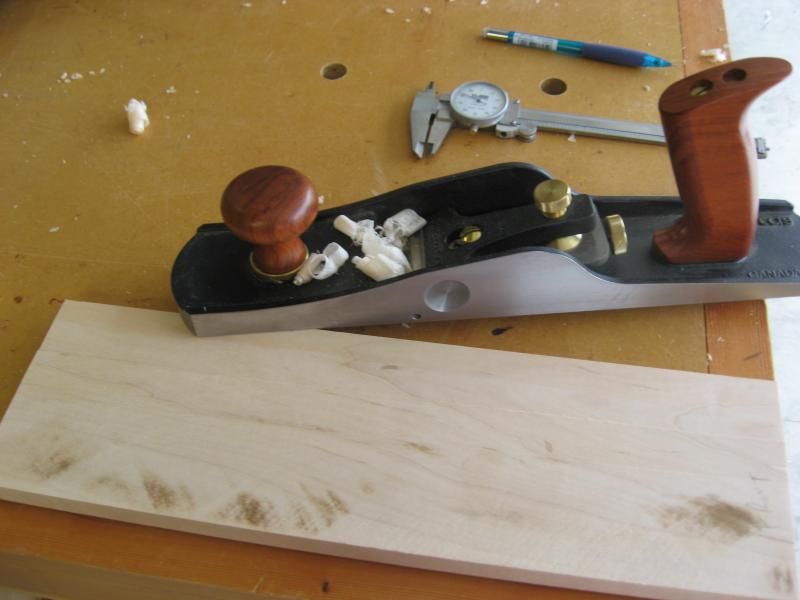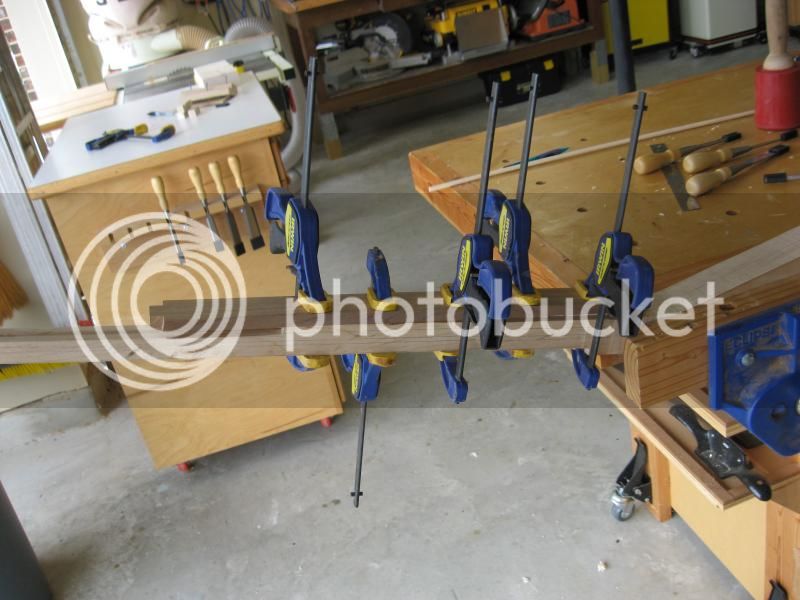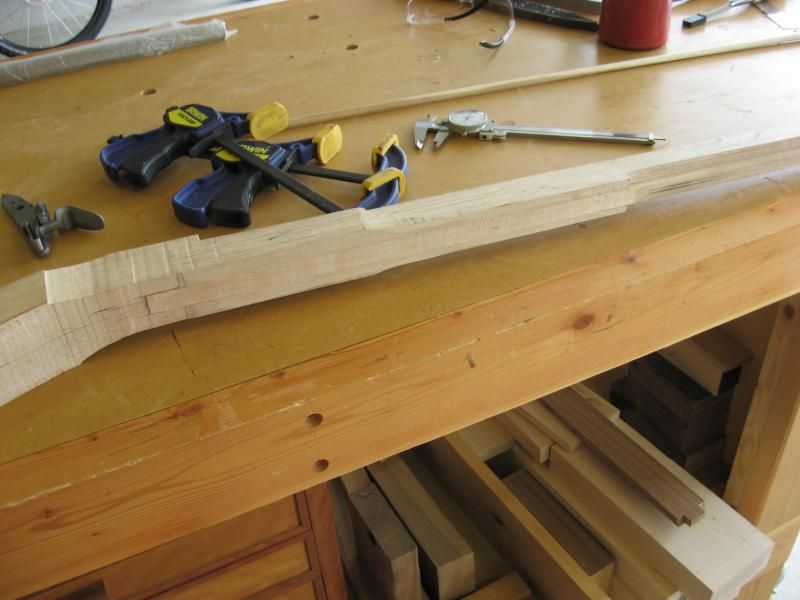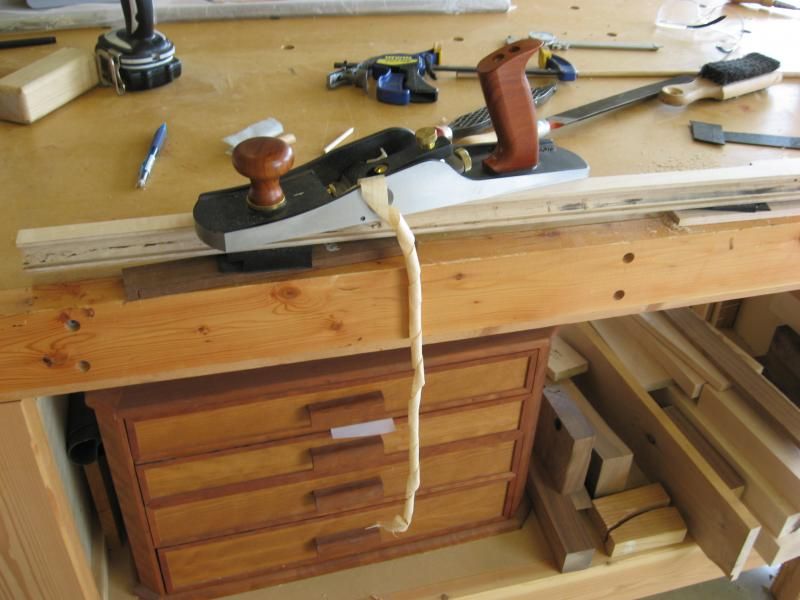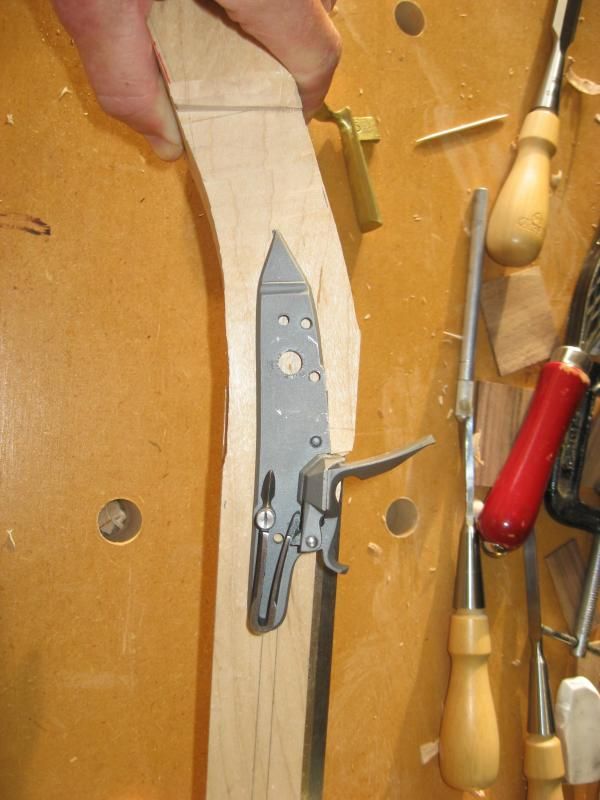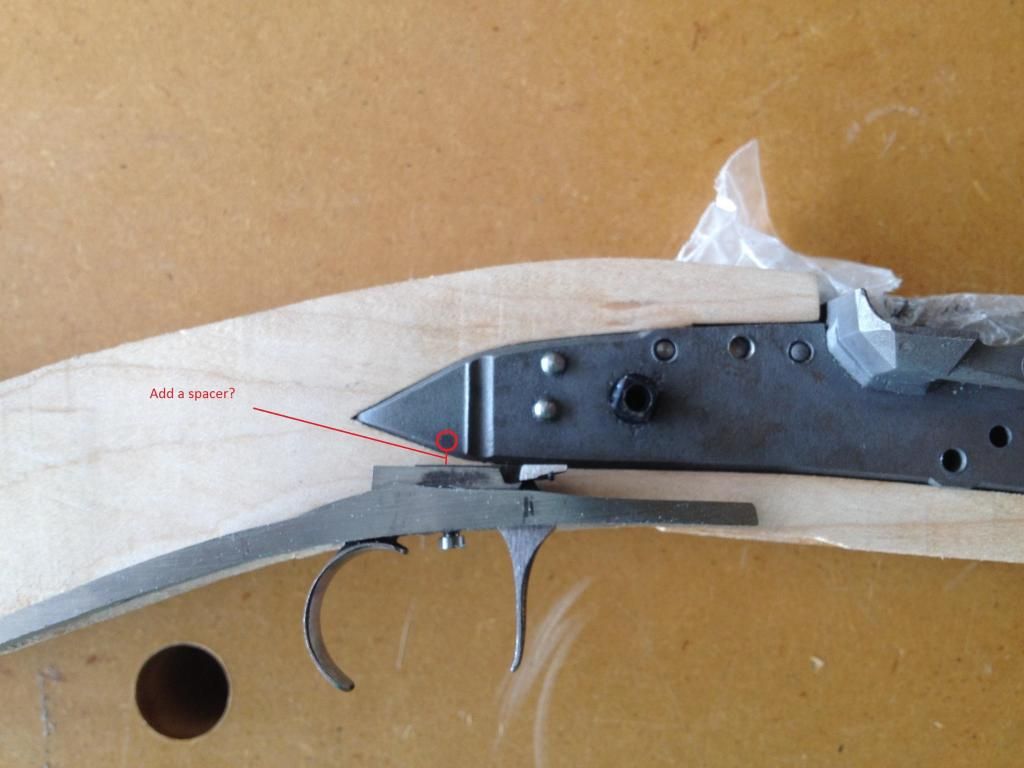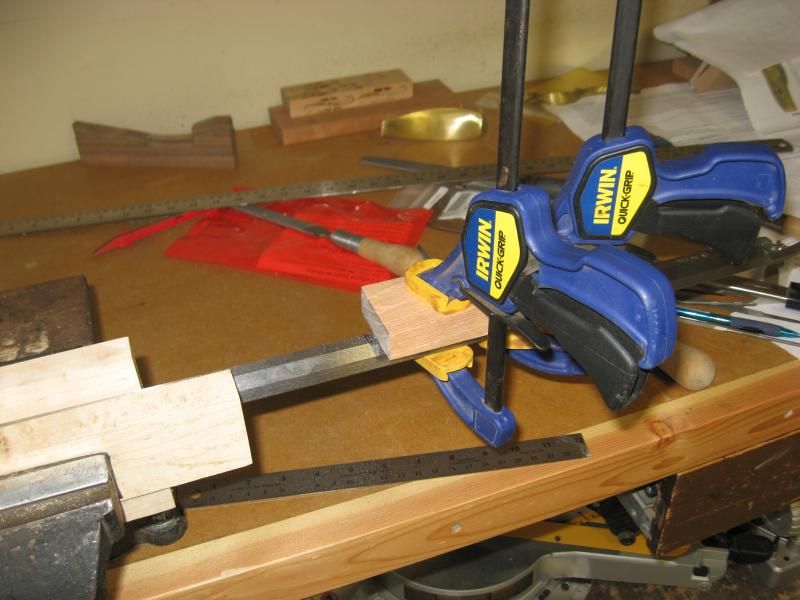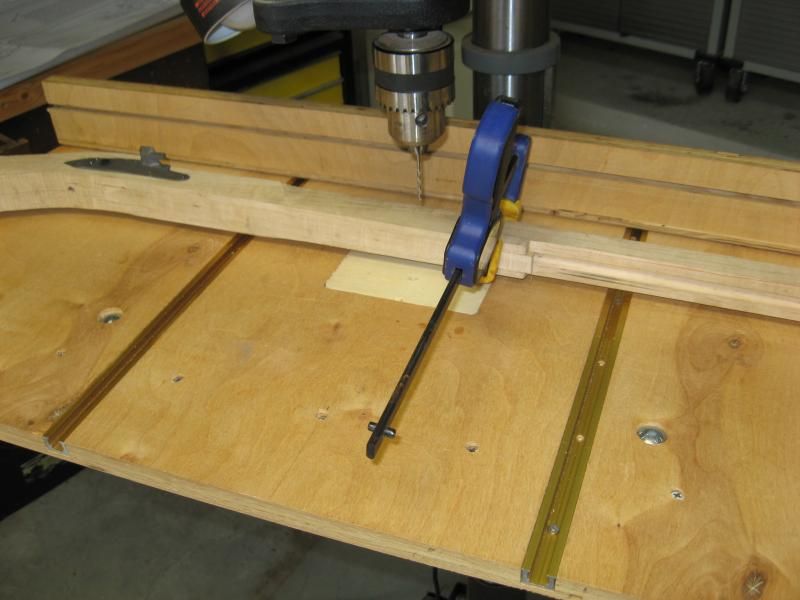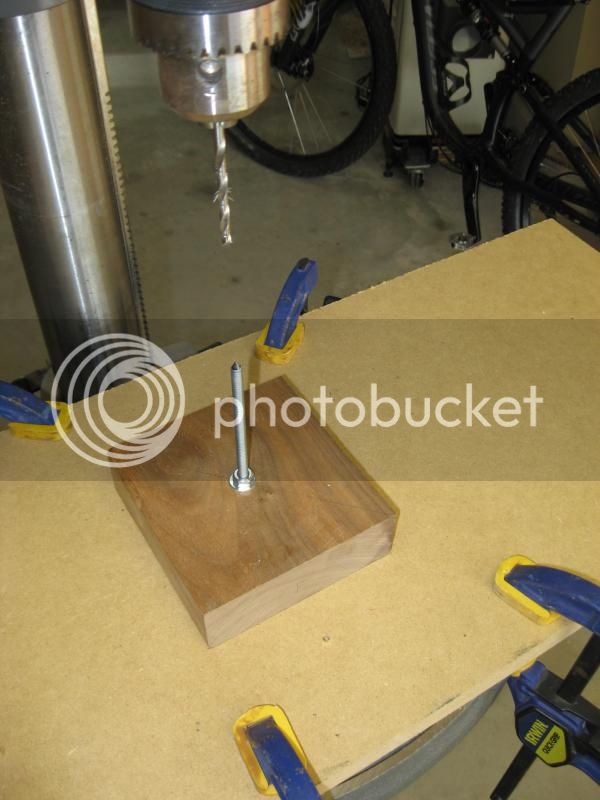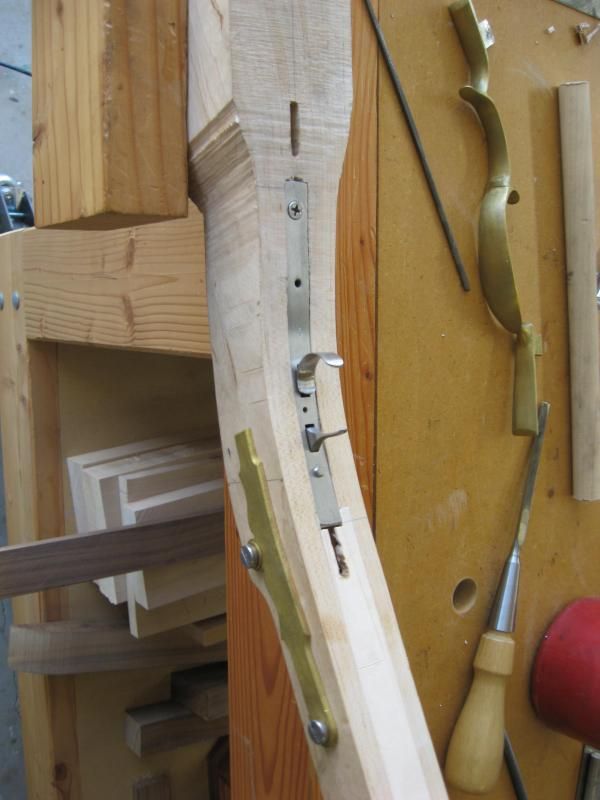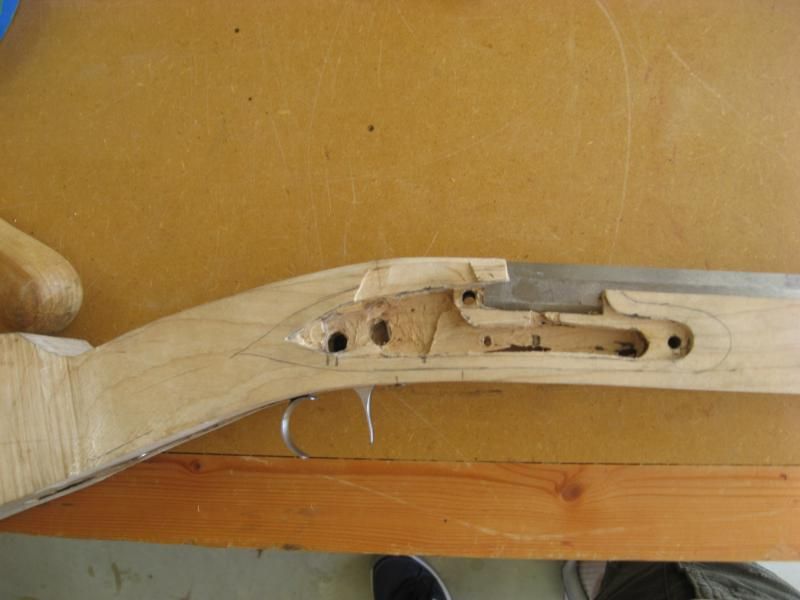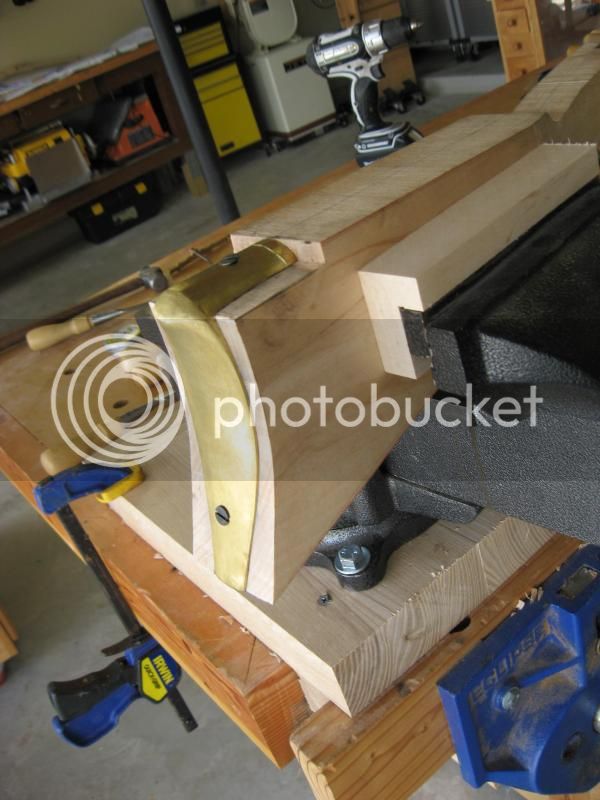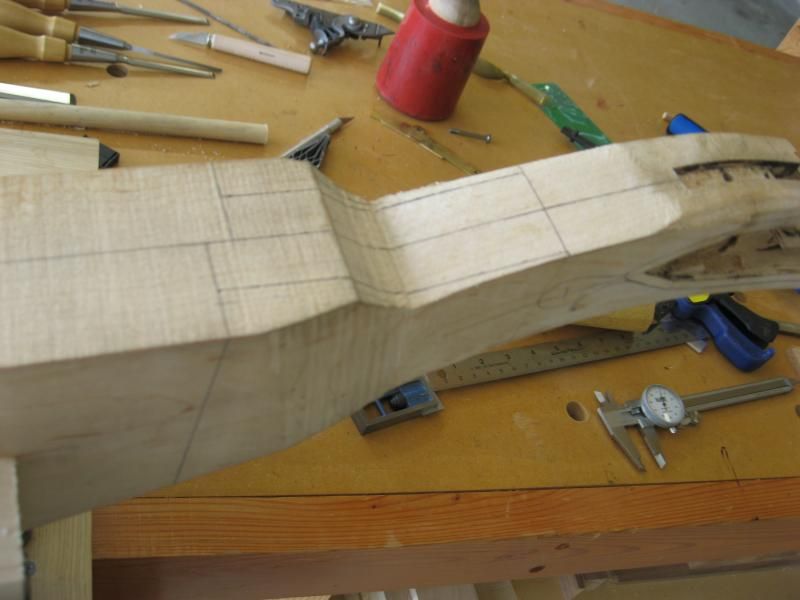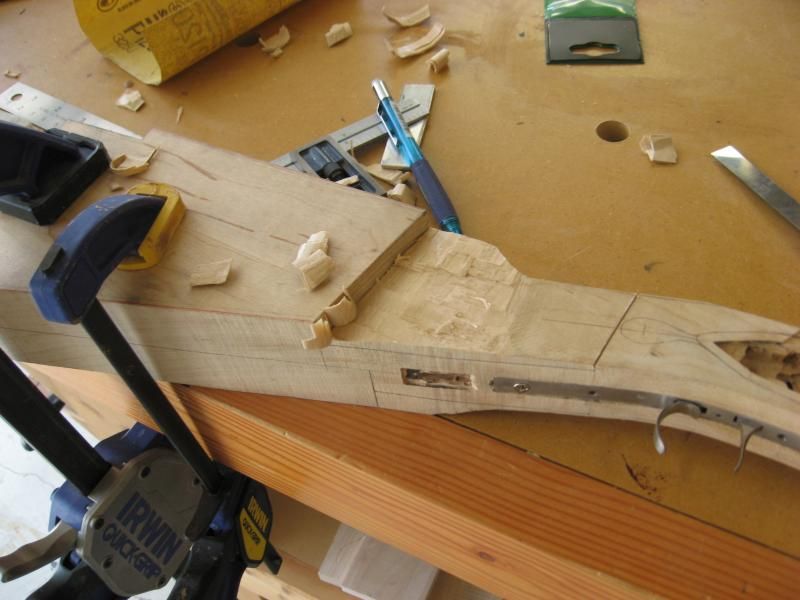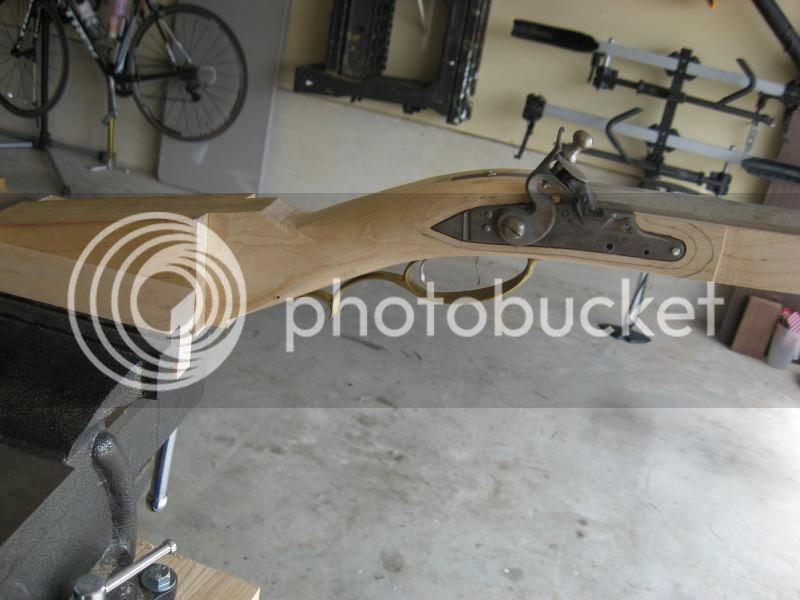Update:
My first attempt at routing the belly patch channel did not go well. Knowing better, but doing it anyway, I just clamped a straight edge to the gun and routed. There was hardly anything to clamp to since the gun is so thin, and of course, the board moved and my cut drifted about 1/16 of an inch:
Bad - :td:
Disgusted with myself, I had to do a little thinking and came up with what I thought was a clever jig. First I put a 5/8 template bushing on the router with a 1/2" spiral upcut bit. For this type of set up you need two parallel guides, so I determined how wide to space my guides and attached them to two spanners. I cut out grooves in the spanners for the gun to sit. Then I clamped two pieces of scrap to the gun and screwd the jig to the scrap. ROCK SOLID!!! :grin:
Top:
Bottom:
Once the groove was routed, I cut an oversized patch with the table saw and brought it down to size using my super duper Veritas low angle plane. If you do not own one of these, I highly recommend getting one. I can take shavings from 1/1000" to as large as I can handle.
Once fitted, I routed a groove in the patch using a box core bit. This eliminates the need to re-drill (I hope).
Gluing in patch with Titebond III:
Final product. Besides the wood not matching, it looks pretty good! Note to self - save scraps until project is complete:
Next step, reduce side thickness from muzzle to panels to 1/8" using the plane. Did I mention I love this plane?
I reduced the panel thickness to the depth of the bolster, then marked the touch hole, 1/8" in front of breech plug, located the lock with the front centered on the web, the rear centered on the wrist, and the pan centered on the touchhole. For some reason I can't rotate this picture:
If anyone see's anything way off, please let me know. I plan on inletting the panel tonight, after I taper the sides.
Thanks!




